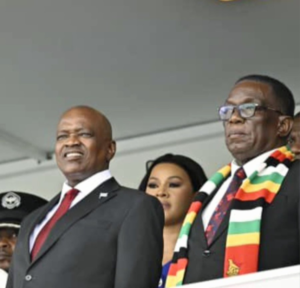MULTICURRENCY EXTENSION: A LEAP TOWARDS ECONOMIC STABILITY IN ZIMBABWE
In a move that heralds economic stability, President Emmerson Mnangagwa of Zimbabwe has recently extended the multicurrency system in the nation, a decision that has been warmly welcomed by the Confederation of Zimbabwe Retailers. This extension, effective till 31 December 2030, is envisaged to infuse a sense of certainty and balance in the market and the broader economy. One of the notable benefits of this extension is that it paves the way for banks to offer long-term credit, a crucial step towards fostering investment and propelling production forward. Moreover, this decision allows for transactions to be predictable, as they will be based on the United States dollar.
Credit, a linchpin in the modern economy, furnishes companies and individuals the means to meet their obligations. This encompasses payments for goods and services, as well as facilitating investment and production. In essence, the availability of credit is synonymous with fuelling economic growth. The extension of the multicurrency regime is a significant step towards enhancing the accessibility of credit, thereby catalysing economic growth.
The statutory instrument promulgated by President Mnangagwa, extending the multicurrency regime, comes in the wake of some currency turbulence stirred by the President himself. Not long ago, President Mnangagwa had expounded on the necessity for Zimbabwe to hold onto its own currency, the beleaguered Zimbabwean dollar, as the sole legal tender. This, he argued, was imperative to ensuring monetary sovereignty and hastening economic development. However, the recent extension of the multicurrency system appears to be a pivot towards a more stable and predictable economic framework, which is a fundamental prerequisite for nurturing a conducive environment for both investment and production.
The Confederation of Zimbabwe Retailers has not shied away from expressing its approval for this strategic economic move. They envisage that the multicurrency system will be instrumental in restoring a semblance of predictability and stability in the market. This, in turn, will create a favourable milieu for banks to extend long-term credit, which is indispensable for supporting investments and boosting production. The ripple effect of this is expected to be a more robust and growing economy.
The predictability of transactions, underpinned by the United States dollar, is another facet that cannot be overlooked. In a global economy where predictability is often synonymous with trust and stability, this move by President Mnangagwa is a stride towards instilling confidence among investors and the populace alike.
In conclusion, the extension of the multicurrency system in Zimbabwe is a sagacious move towards buttressing the economy against uncertainty and volatility. By unlocking the potential for long-term credit and ensuring predictable transactions, this extension is poised to drive economic growth and stability in Zimbabwe, fulfilling the aspirations of its citizens for a prosperous and stable economic landscape.



